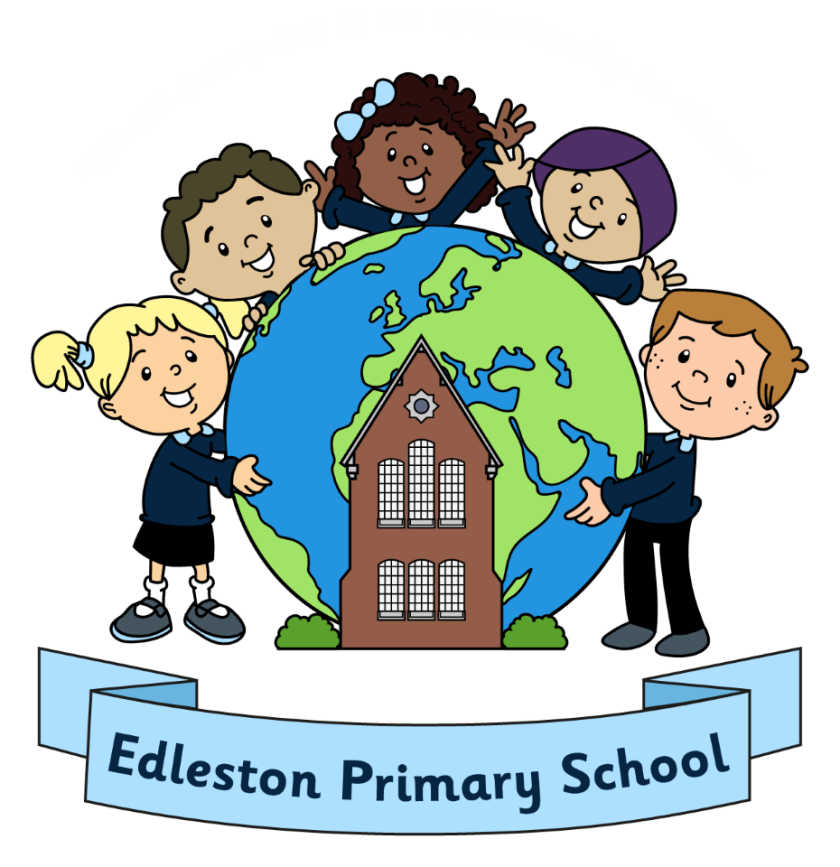Music
Vision
Edleston Primary School recognises the value of music in the primary school curriculum. We believe that learning in music is fun, valuable in itself and can enhance learning in other aspects of the curriculum. We also believe that music is good for well- being and team work and can develop self-esteem. Our Music curriculum aims to create children who will:
- Be confident performers, composers and listeners and will be able to express themselves musically at and beyond school.
- Show an appreciation and respect for a wider range of musical styles from around the world and will understand how music is influenced by the wider cultural, social and historical contexts in which it is developed.
- Understand the various ways in which music can be written down to support performing and composing activities.
- Demonstrate and articulate an enthusiasm for music and be able to identify their own personal musical preferences.
- Meet the end of key stage expectations outlined in the National curriculum for Music.
Intent
We believe that music should provide opportunities for pupils to:
- appreciate and enjoy performances of recorded and live music from different times and cultures
- sing
- create and perform music
- explore the elements of music: pitch, duration, dynamics, tempo, timbre, texture, structure and appropriate musical notations.
Implementation
At Edleston Primary School, music is an area of learning in its own right and is also, at times and only where appropriate, linked to themed areas of learning. All the children sing in hymn practice every week. This session includes aspects of vocal technique and technical aspects of music.
Kapow Primary music scheme is used throughout school to support children to feel that they are musical and to develop a life-long love of music. We focus on developing the skills, knowledge and understanding that children need in order to become confident performers, composers and listeners. Our curriculum introduces our children to music from all around the world and across generations, developing respect and appreciation for music of all traditions and communities. Music lessons do not necessarily take place in class every week, because at certain times of the year the children will be preparing for performances, for example at Christmas.
Our music scheme takes a holistic approach to music, in which the individual strands below are woven together to create engaging and enriching learning experiences.
- Listening and evaluating
- Creating sound
- Notation
- Improvising and composing
- Performing
Each five-lesson unit combines these strands within a cross-curricular topic designed to capture pupils’ imagination and encourage them to explore music enthusiastically. Over the course of the scheme, our children will be taught how to sing fluently and expressively and play tuned and untuned instruments accurately and with control. They will learn to recognise, demonstrate and name the interrelated dimensions of music – pitch, duration, tempo, timbre, structure, texture and dynamics – and use these expressively in their own improvisations and compositions.
The scheme follows the spiral curriculum model where previous skills and knowledge are returned to and built upon. The children progress in terms of tackling more complex tasks and doing simple tasks better, as well as developing understanding and knowledge of the history of music, staff, and other musical notations, and the interrelated dimensions of music.
In the Foundation Stage, there are instruments available to access in the outdoor learning area. There may also be instruments inside, following a teacher input. Music is part of the expressive arts and design curriculum.
This year, all children in Year 3 are learning to play the ukulele.
We have a well attended choir which children can join from Year 4.
Impact
Children leave us with experience of performing in a group and in some cases, as a soloist; a basic knowledge of the elements of music and some children develop the ability to discriminate between genres (eg. rock, classical) and name some instruments of the orchestra. We want children to appreciate music from a range of genres and to be curious about learning more technical skills and listening to more music during their high school careers and in the future.
